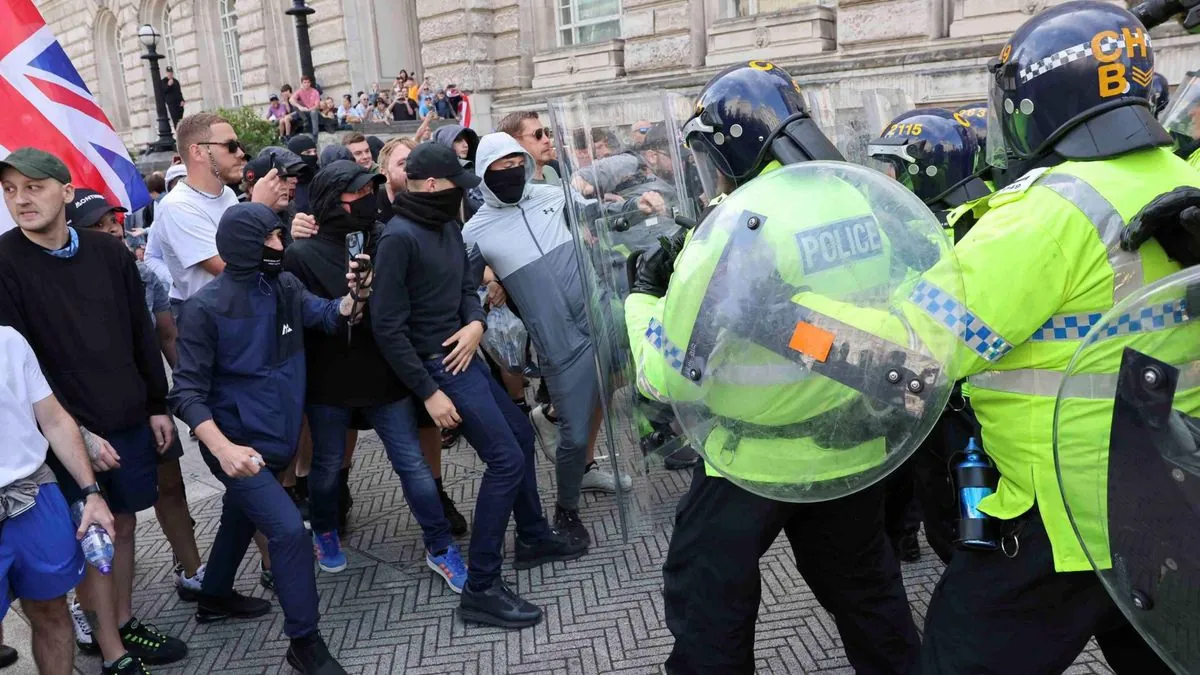UK Grapples with Anti-Immigrant Unrest Amid Rising Tensions
Britain faces widespread riots sparked by false claims about a stabbing incident. PM Starmer's government responds with increased law enforcement, while experts highlight challenges in quelling the unrest.

The United Kingdom is currently experiencing its most severe civil unrest in over a decade, with anti-immigrant riots sweeping across 15 English cities and Belfast. Keir Starmer, the Prime Minister, is facing his first major challenge as his government struggles to contain the violence.
The unrest began on July 29, 2023, following a stabbing incident in Southport that resulted in the deaths of three young girls. False claims circulated on social media, erroneously identifying the assailant as an asylum seeker. Despite efforts to correct this misinformation, the riots have continued.

Starmer's administration has adopted a firm stance, emphasizing increased police presence, arrests, and prosecutions. As of August 2, 2023, authorities reported 428 arrests and 120 charges. The government has also announced the addition of 567 prison spaces to accommodate those convicted of rioting.
"Courts could sit 24 hours a day to handle thugs who maraud our streets."
Despite these measures, experts highlight the challenges in quelling the unrest. Tim Newburn, a criminologist at the London School of Economics, notes the difficulty in anticipating and responding to rapidly emerging hotspots across the country. The UK's extensive CCTV network, estimated at 5.2 million cameras as of 2020, aids in identifying perpetrators but does not prevent initial outbreaks.
The riots have occurred against a backdrop of increasing immigration concerns. Since 2018, over 125,000 people have crossed the English Channel illegally, with 12,313 making the journey in 2023 alone. The UK's net migration reached a record 685,000 in 2022, contributing to public unease.
While 85% of Britons oppose the riots according to a YouGov survey, underlying tensions remain. The UK's complex immigration history, dating back to significant post-World War II waves, continues to shape public discourse. The government's response must balance addressing immediate unrest with long-term immigration policies.
As the situation unfolds, the UK's tradition of unarmed policing and community-oriented law enforcement faces a stern test. The coming weeks will be crucial in determining whether the government's strategy can effectively address both the symptoms and root causes of the current unrest.


































